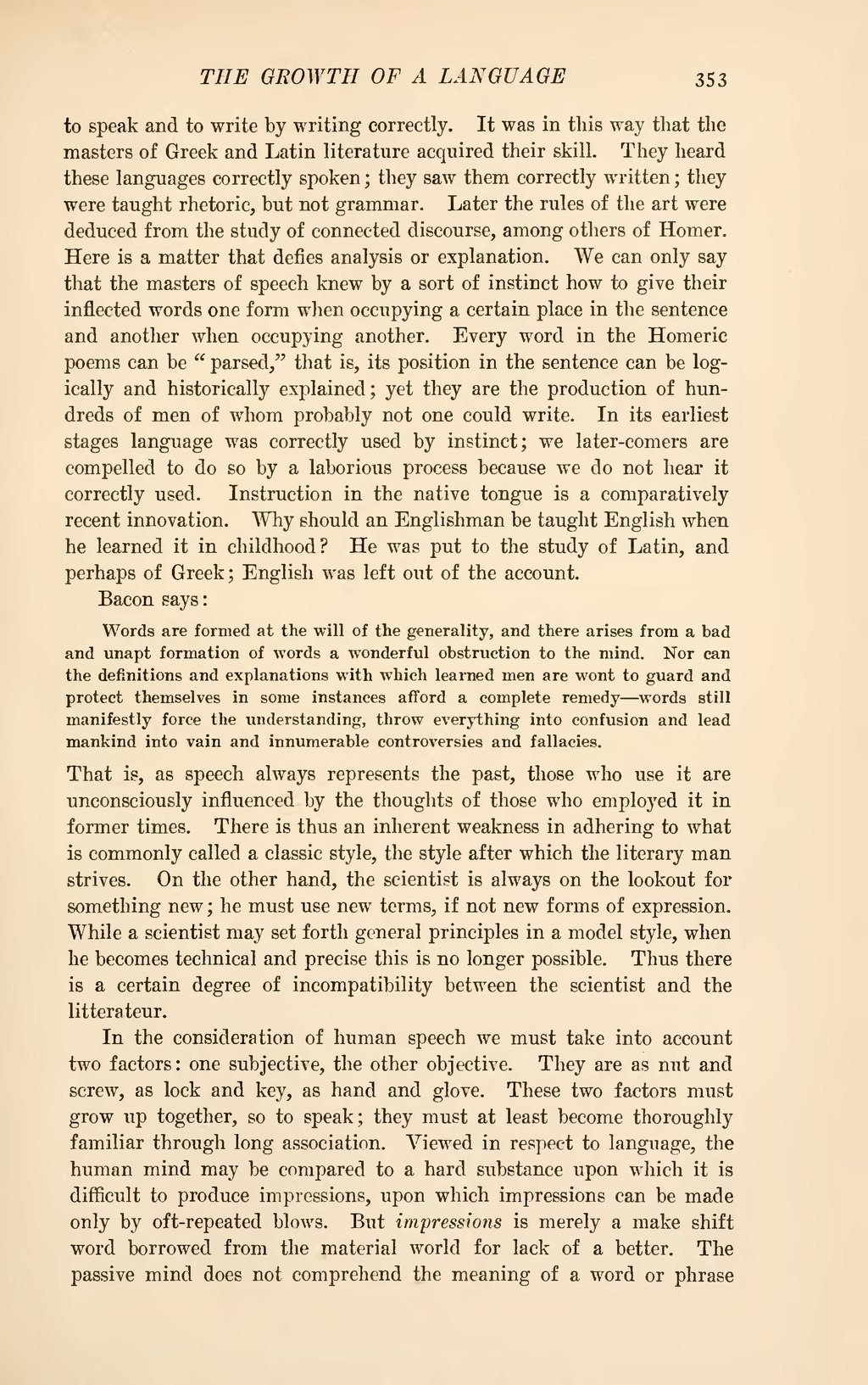to speak and to write by writing correctly. It was in this way that the masters of Greek and Latin literature acquired their skill. They heard these languages correctly spoken; they saw them correctly written; they were taught rhetoric, but not grammar. Later the rules of the art were deduced from the study of connected discourse, among others of Homer. Here is a matter that defies analysis or explanation. We can only say that the masters of speech knew by a sort of instinct how to give their inflected words one form when occupying a certain place in the sentence and another when occupying another. Every word in the Homeric poems can be "parsed," that is, its position in the sentence can be logically and historically explained; yet they are the production of hundreds of men of whom probably not one could write. In its earliest stages language was correctly used by instinct; we later-comers are compelled to do so by a laborious process because we do not hear it correctly used. Instruction in the native tongue is a comparatively recent innovation. Why should an Englishman be taught English when he learned it in childhood? He was put to the study of Latin, and perhaps of Greek; English was left out of the account. Bacon says:
Words are formed at the will of the generality, and there arises from a bad and unapt formation of words a wonderful obstruction to the mind. Nor can the definitions and explanations with which learned men are wont to guard and protect themselves in some instances afford a complete remedy—words still manifestly force the understanding, throw everything into confusion and lead mankind into vain and innumerable controversies and fallacies.
That is, as speech always represents the past, those who use it are unconsciously influenced by the thoughts of those who employed it in former times. There is thus an inherent weakness in adhering to what is commonly called a classic style, the style after which the literary man strives. On the other hand, the scientist is always on the lookout for something new; he must use new terms, if not new forms of expression. While a scientist may set forth general principles in a model style, when he becomes technical and precise this is no longer possible. Thus there is a certain degree of incompatibility between the scientist and the litterateur.
In the consideration of human speech we must take into account two factors: one subjective, the other objective. They are as nut and screw, as lock and key, as hand and glove. These two factors must grow up together, so to speak; they must at least become thoroughly familiar through long association. Viewed in respect to language, the human mind may be compared to a hard substance upon which it is difficult to produce impressions, upon which impressions can be made only by oft-repeated blows. But impressions is merely a make shift word borrowed from the material world for lack of a better. The passive mind does not comprehend the meaning of a word or phrase
